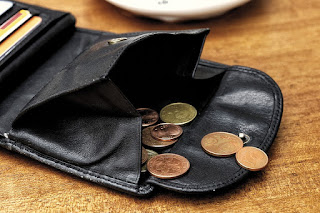Financial responsibility is a skill that everybody should want to develop. After all, the amount of money a person has will have huge influences on their life opportunities. Moreover, it will impact your future as well as your present. Overlooking the importance of getting this part of life right is simply not an option.
So what are the telling attributes that will confirm whether you’re doing enough with your finances? Let’s take a closer look.
Respecting Your Credit Score
Everybody has a credit history, and yours will impact virtually every major financial decision. If you’re looking to receive any form of credit, your score will essentially dictate how likely you are to be accepted. Moreover, it could be the difference between taking on high or low interest.
We all make mistakes. But if your credit history is poor, it’s imperative that you start repairing the damage immediately. The first step is to access your
free annual credit report to check where you are going wrong. While you’re at it, it’s best to check that any data held on file is accurate.
Your credit score might not directly impact the funds you currently have sitting in the bank. However, the influence it has on your future financial opportunities cannot be emphasized enough. Working towards the best score possible is essential.
Keeping Yourself Protected
It’s one thing to create a situation where you feel financially stable right now. But what happens if life serves up one of its many unforeseen situations? If you’re not prepared to deal with the worst, you could be setting yourself up for a very nasty surprise.
With this in mind, educating yourself over insurance is vital. It’s not enough to simply take out the first policy you see. Understanding the
different categories and coverage levels is crucial. Hopefully, you’ll never need to exercise your plan. Still, knowing that you have the protection is as important for your emotional security as it could be your financial health.
Controlling Overheads
While there’s no denying that a high income is hugely beneficial, it isn’t the only key element of your financial status. Your outgoings can be equally important to determining where you stand both now and in the future. Thankfully, improving this area is far simpler than working towards a higher wage.
Most households are guilty of unnecessary overspend. Whether it’s modifying your cell phone package or your energy rates, each saving is a step towards a brighter financial future. Combine this with simple lifestyle changes, like organizing a carpool to work or
couponing, to take those savings further.
Alternatively, upcycling can save the need for making additional purchases. Similarly, selling unwanted goods can generate income too.
Focusing One Eye On The Future
First and foremost, you need to take care of the present. However, planning ahead for the future is another hallmark of a responsible individual. Do not underestimate it for a second.
Investments play a crucial role in building a better future. This is especially true in today's climate as pensions are unlikely to offer enough support in later life. There are plenty of potential avenues to take, but property investment is easily one of the most secure solutions. Whether buying to sell or let, experts at
STL Real Estate can help you maximize your profits. Just remember that you also want to survey any property before making a commitment.
Trading stocks and other opportunities may become available too. As long as you do your research before rushing in, there’s no reason that your savings can’t become the key to future riches.
Prioritizing Ambitions
Most people have a long list aspirations in life. Unfortunately, very few are in a position to actively chase them all at once. Sometimes, knowing when to be patient is the most telling quality of all. For example, if completing a smaller purchase is going to stop you from achieving your biggest goal, it doesn’t make sense. Knowing what you want most, and working towards that target will set you on the right pathway. In truth, those skills can aid other aspects of your life too.
Clearing debt should be your priority at all times. The longer you owe money, the bigger those repayments will become. Beside, getting back into the black is the greatest step towards your financial freedom. It may simply mean
taking a consolidation loan to reduce your overall payments. Nevertheless, you should always take advantage of anything that will speed up the process of becoming clean.
Analyzing Your Options
Throughout your life, you will encounter thousands of financial decisions. Making better choices on a daily habit will help, but it’s particularly crucial when dealing with the major purchases. After all, the pathway you choose could potentially save you hundreds.
Take buying a car as an example. While you may think purchasing is the obvious option, the rate of depreciation means this might not always be the case.
Car leasing can work out cheaper in the long run, especially if you plan to change your vehicle on a fairly regular basis. Besides, this way you don’t need to worry about the hassle of selling a used motor either.
There are many other situations where weighing up the pros and cons of each option could generate a huge influence on your financial health. As a responsible person, it’s imperative that you get into the habit.
Monitoring Your Situations
You may think that you’re handling your finances in a suitable fashion. But how can you ever be 100% certain until you actively analyze it?
Tracking your expenses will give you a far deeper understanding of where you stand, especially if you need to
file your own taxes. Moreover, it should allow you to pinpoint any areas that need improving before they cause any more damage. When you rectify those mistakes ASAP, achieving the best financial status possible becomes far easier.
That doesn’t mean you’ll become a millionaire, but it will give you the best chance of staying secure. If that isn’t an incentive to go that extra mile, then what is?


















